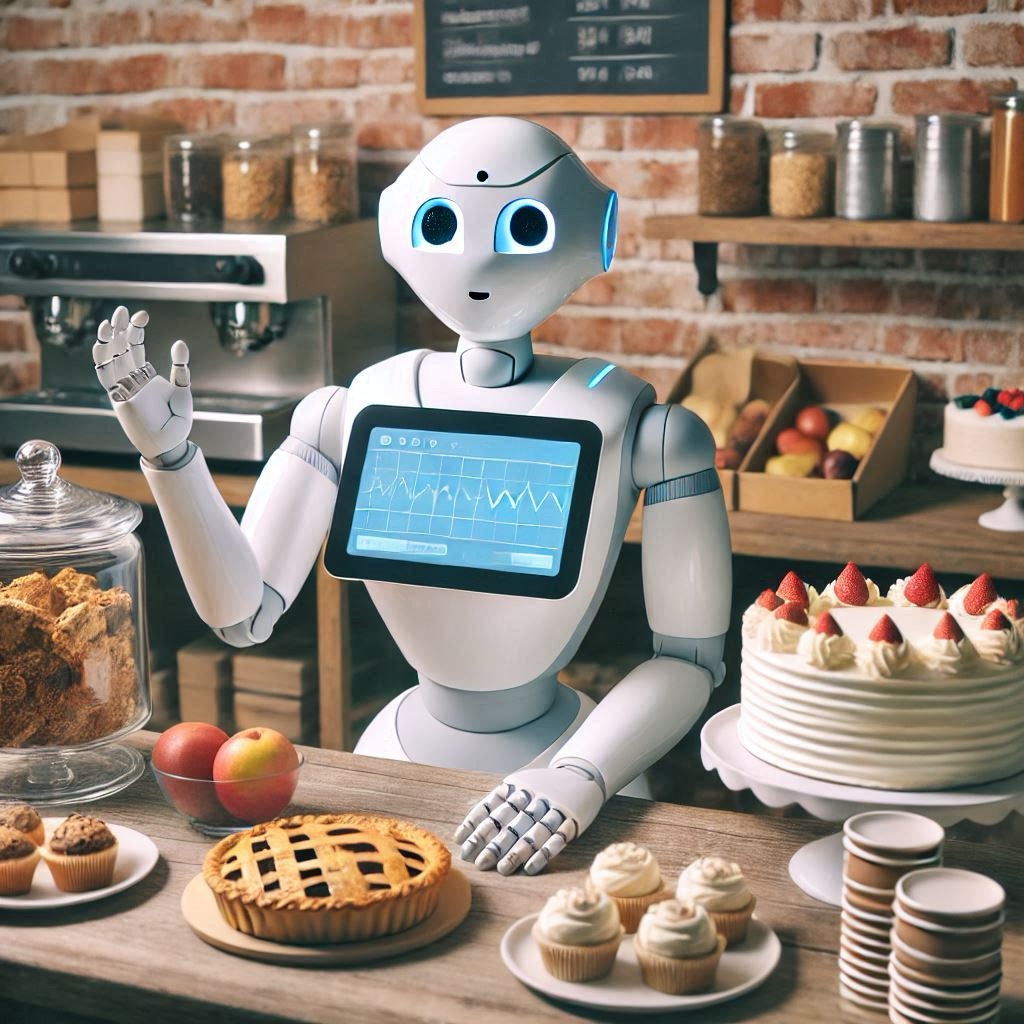So, I was thinking again about how people are using Artificial Intelligence (AI) to make money.

Here are five creative ways I found people are using artificial intelligence to make money:
1. AI-Generated Content Creation
People are using AI tools to create content such as articles, videos, and social media posts. This content can be monetized through advertising, sponsorships, or affiliate marketing. For example, AI can generate SEO-optimized blog posts that attract traffic and generate revenue through ads.
Here’s a breakdown of how people are monetizing AI-generated content:
a. Freelance Content Creation
•Blog Writing:
• Freelancers use tools like ChatGPT or Jasper to generate blog posts for clients, saving time while delivering high-quality content.
•Copywriting:
• AI assists in writing ad copy, product descriptions, and marketing emails, which are sold as freelance services.
•Script Writing:
• AI tools help generate scripts for YouTube videos, podcasts, or short films.
b. Selling Digital Products
•E-books:
• Authors use AI to draft, edit, and publish e-books quickly, selling them on platforms like Amazon Kindle Direct Publishing.
•Online Courses:
• AI helps create course materials, including written content, slides, and assessments, which are then sold on platforms like Udemy or Teachable.
•Templates & Tools:
• People design and sell AI-generated templates for resumes, marketing campaigns, or social media content.
c. Content Monetization Platforms
•YouTube:
• Creators use AI to script and even voice-over videos, reducing production costs while monetizing through ads, sponsorships, and memberships.
•Blogs:
• AI-generated blog posts drive traffic to websites that earn revenue from ads, affiliate links, or subscription models.
•Social Media:
• AI tools like Canva and Copy.ai help create engaging posts or videos, which are monetized through brand collaborations or affiliate marketing.
d. Print-On-Demand Businesses
•AI Art & Designs:
• AI tools like MidJourney or DALL·E generate unique artwork and designs for T-shirts, mugs, posters, and other merchandise sold via platforms like Etsy, Redbubble, or Printful.
•Customizable Products:
• Businesses sell AI-generated content like greeting cards or wall art with personalized text and designs.
e. Content Subscription Services
•Newsletters:
• Writers use AI to produce high-quality newsletters for niche topics, charging subscription fees via platforms like Substack or Patreon.
•Content Libraries:
• AI is used to create stock photos, video clips, or written content that people sell as part of a subscription model.
f. SEO and Affiliate Marketing
•Niche Websites:
• AI generates SEO-optimized content for blogs and websites targeting high-ranking keywords, earning through affiliate links or ad revenue.
•Product Reviews:
• AI writes detailed product reviews or comparisons that include affiliate links to earn commissions.
g. Selling AI-Generated Art
•NFTs:
• Creators use AI to generate unique digital art pieces and sell them as NFTs on platforms like OpenSea.
•Commissions:
• Artists offer customized AI-generated portraits or artwork for personal or business use.
h. Personalized Content Services
•Chatbots & Interactive Stories:
• AI tools create custom, interactive stories or experiences (e.g., choose-your-own-adventure stories) sold to individuals or businesses.
•Custom Poems or Songs:
• Platforms like Songfinch allow people to sell AI-assisted personalized songs or poetry for special occasions.
i. Virtual Assistance
•Ghostwriting:
• Writers use AI to assist in ghostwriting books, articles, or speeches, charging clients a premium for the service.
•Content Repurposing:
• Individuals repurpose existing content into different formats (e.g., turning blog posts into video scripts or e-books).
j. AI Tools as a Service
•Training & Consulting:
• Professionals offer training on how to use AI content tools effectively, monetizing their expertise.
•Custom AI Models:
• Developers create specialized AI tools for industries (e.g., real estate listing generators) and sell them.
k. Podcasting
•AI-Generated Scripts & Editing:
• AI creates podcast scripts, edits audio, and adds sound effects, making podcast production more efficient and cost-effective.
•Monetization:
• Podcasts are monetized through sponsorships, ads, and listener donations.
l. Reselling AI Services
•White-Label Solutions:
• Entrepreneurs use AI tools to create content for businesses, branding the output as their own and charging for services.
•Content Agencies:
• Small agencies use AI to scale up their content production while charging clients traditional rates.
13. Experimenting with Emerging Trends
•AI Meme Generation:
• Platforms like Meme Generator powered by AI are used to create viral content, which can be monetized through ads or brand sponsorships.
•Interactive Games:
• AI-generated stories and characters are used to create engaging gaming experiences sold as apps or downloads.
m. Writing and Selling Reviews
•Review Sites:
• AI generates content for product or service review sites, earning income through ads or affiliate partnerships.
By leveraging AI, people can focus on creativity and strategy while automating repetitive or time-consuming tasks, making content creation faster and more profitable.

2. AI-Powered E-commerce
Entrepreneurs are leveraging AI to create and manage online stores. AI can help with product recommendations, inventory management, and personalized marketing, leading to increased sales and customer satisfaction.
3. AI-Enhanced Freelance Services
Freelancers are using AI tools to enhance their services. For instance, graphic designers can use AI to create unique designs, while writers can use AI to generate drafts and improve their productivity. This allows them to offer more value to their clients and charge higher rates.
4. AI-Driven Financial Services
AI is being used to provide financial advice, manage investments, and offer personalized financial planning. AI-powered robo-advisors can analyze market trends and provide investment recommendations, helping users make informed decisions and potentially earn higher returns.
5. AI in Creative Industries
Artists and creators are using AI to produce unique artworks, music, and other creative content. These AI-generated works can be sold as digital assets, integrated with cryptocurrencies, or used in various multimedia projects.
